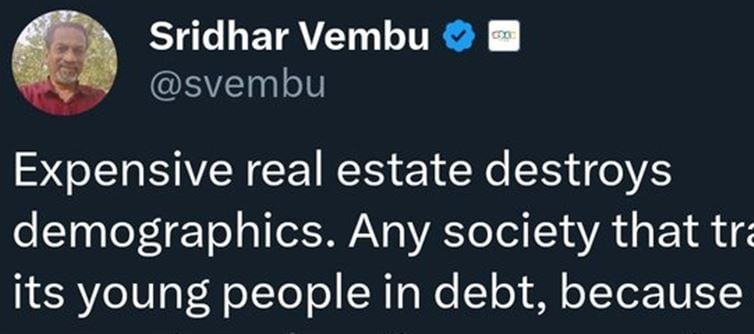
Why India’s Middle-Class Workforce Is Quietly Burning Out — and Opting Out”
What happened:
Zoho CEO sridhar Vembu stated that many indian employees feel increasingly demotivated, echoing the common workplace sentiment: “BC main kyun gaan marau akela”—why should I struggle alone?
Why it matters:
The comment has struck a nerve because it reflects a deepening national crisis: middle-class indians are losing financial and emotional bandwidth to stay productive. With over 80% of income drained by home loans, children’s education, taxes, medical bills, and rising living costs, workers feel trapped in a loop of survival, not growth.
Why it matters (continued):
This burnout is no longer private—it’s showing up in declining productivity, muted ambition, and an exit trend among those who have finished paying their loans.
Contradictions / hidden angles:
While companies complain about a lack of motivation, they rarely acknowledge the stagnant wages vs skyrocketing costs, which structurally kill motivation. And despite india projecting itself as a booming economy, the lived reality for salaried families is high taxation without visibly improving public services, leaving them feeling punished for working hard.
Contradictions / hidden angles (continued):
The exodus of debt-free employees isn’t a “lack of loyalty”—it’s a strategic escape from burnout that institutions refuse to address.
Critical takeaway:
Until india fixes the widening gap between income, cost of living, and quality of life, “lack of motivation” will remain a symptom—not the disease.




 click and follow Indiaherald WhatsApp channel
click and follow Indiaherald WhatsApp channel